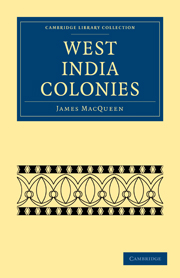Summary
THE champions and scribes of the African Institution, in order to irritate the population of this country, never fail to describe the system of Slavery established in our West India Colonies as the worst witnessed on earth. Either history is a fable or their statements are untrue. From the pages of one of our ablest historians I select the account of that Slavery which formerly existed in Europe and in England.
“An universal anarchy, destructive, in a great measure, of all the advantages which men expect to derive from society prevailed. The people, the most numerous as well as the most useful part of the community, were either reduced to a state of actual servitude, or treated with the same insolence and rigour as if they had been degraded into that wretched condition.
“The persons employed in cultivating the ground during the ages under review, may be divided into three classes.
1st. “Servants or Slaves.
“This seems to have been the most numerous class, and consisted either of captives taken in war, or of persons, the property in whom was acquired in some one of the various methods enumerated by Du Cange.—Vol. 6. p. 447.
“The wretched condition of this numerous race of men will appear from several circumstances.
1st. “Their masters had absolute dominion over their persons. They had the power of punishing their Slaves capitally without the intervention of any judge. This dangerous right they possessed not only in the more early periods when their manners were fierce, but it continued as late as the 12th century. […]
- Type
- Chapter
- Information
- West India Colonies , pp. 308 - 410Publisher: Cambridge University PressPrint publication year: 2010First published in: 1824



